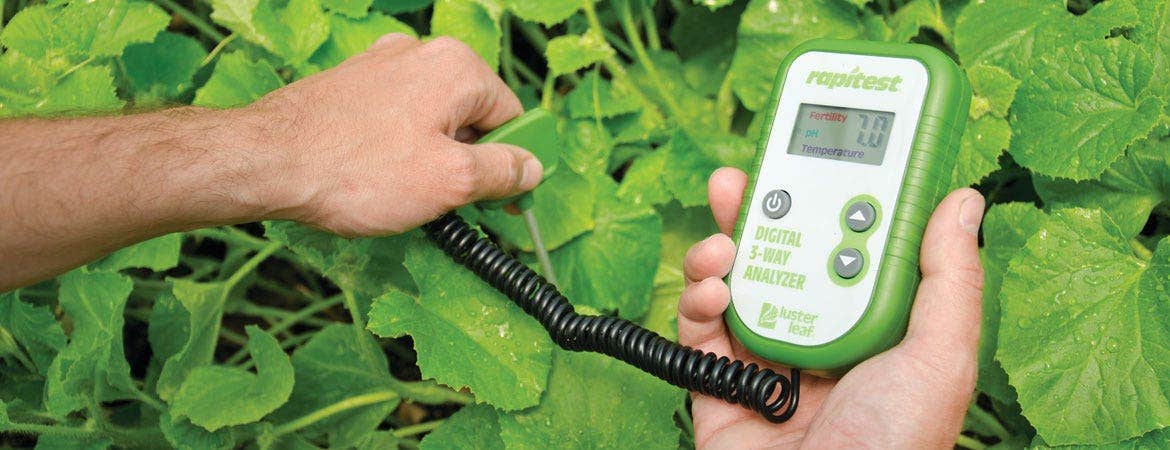Understanding Garden Soil pH


Soil pH is the measured level of acidity or alkalinity in your soil. The environment, including moisture, lighting, and temperature, can also effect your soil's pH. This is why it's important to test your pH level regularly throughout the growing season.
Soil pH affects how nutrients dissolve in water and which nutrients are available to plants. Some nutrients are more available under acidic conditions while other nutrients are more readily available in alkaline conditions. Typically, a pH level near neutral (between 5.5. and 7.5) is ideal.
Alkaline soils can be deficient of zinc, copper, boron and manganese. Soils with an extremely alkaline level of 9 or more are likely to have high levels of sodium.
Acidic soils can result in poor plant growth, damaged plants, and reduced yields. The availability of micronutrients such as manganese, aluminium, and iron increases, which can lead to toxicity problems. A low pH can also result in deficiencies of potassium, calcium, and magnesium.
It is very important to check soil pH levels on a regular basis. The sooner you find a problem with your soil's pH level, the more quickly you can correct it and save your valuable plants. Also remember to check the recommended pH level for your plants, as some plants grow better in acidic or alkaline soil.
With the right tools, it's very easy to measure your soil's pH level and adjust it if needed. Check out our infographic below to learn more!

